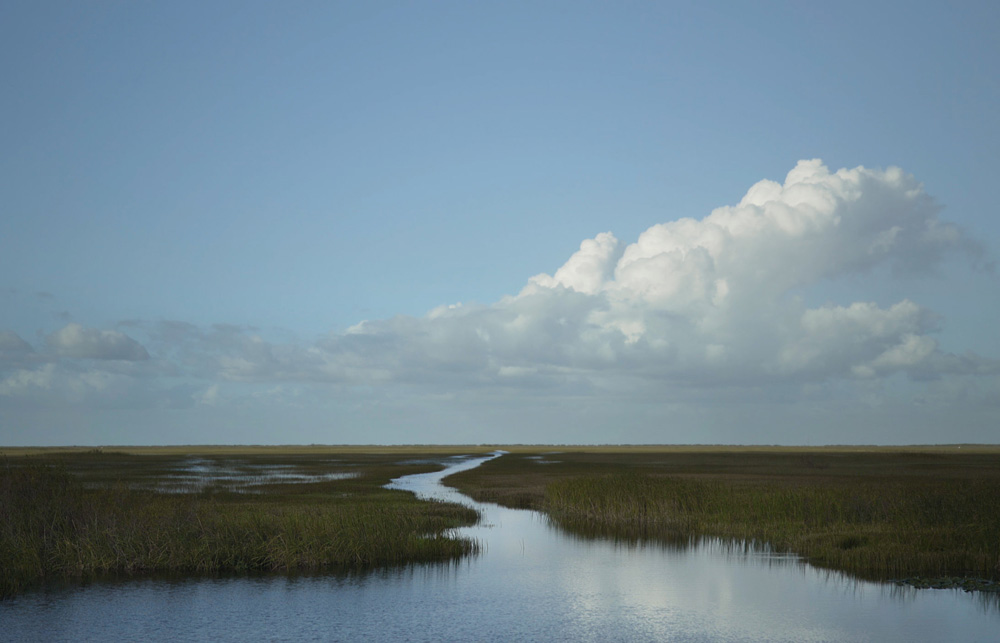Sasha Wortzel describes going to Lake Okeechobee for the first time in “River of Grass,” having grown up in the Florida Everglades but only dipping her toe into the water for the first time as she’s filming her debut feature. She’s been close enough, previously traveling alongside it as she would visit her grandmother for Passover Seders and as she notes, it’s long been inside of her when it’s long been a source of drinking water in the state, but accompanying the indigenous activist Betty Osceola as she leads others on a prayer walk is the first time she’s made contact, the sensation of which can be overwhelming in spite of all that she felt she knew before.
As Wortzel comes to illustrate a fragile ecosystem in the Everglades, she delicately puts one together in “River of Grass” that can feel similarly immense, connecting a number of different strands reflecting those that draw on the wetlands to make a living from alligators to humans in an increasingly inhospitable climate. The director frames the film in personal terms from the start with narration, first recalling how she tracked sea turtles as a child, always amazed at their ability to return to the same spot year after year, but it’s less the words than the barrage of natural sounds and images that create an intimacy, a total immersion that recalibrates the senses to adjust to the gentle rhythms of the place. One loosely connected scene impacts the next as one seemingly disparate element of the environment affects another and the film itself remains solemn and steady as it begins to bring into focus the increasingly erratic swings between the organically occurring dry and wet seasons that ensured water would flow through the region offering a sustainability to all.
“River of Grass” owes its title to the famed book by the journalist and conservationist Marjory Stoneman Douglas, who made protection of the Everglades her life’s work. Interviews she did towards the end of her life – notably, quite a long one at 108 years old, surely practicing the same moderation she preached – become central to Wortzel’s film, but the film evolves into something more sprawling when the director checks in with local commercial fishermen who see a decline in their catch, those who have started to protest after seeing the longterm effects of the toxins released by sugarcane burning and the indigenous community that has a natural protective instinct for the land, which once was able to offer safety for them when they could hide from colonizers in island trees.
Wortzel is obviously most drawn to Osceola, a member of the Miccosukee tribe who rides a four-wheeler and dons a “Biker Grandma” patch on her leather jacket, but beyond her cool, she articulates the film’s desire the strongest to completely reenvision a conversation around climate change, seeing the water as a living being that behaves as a human would as its health is threatened. “River of Grass” succeeds in looking at a crisis in an entirely different way to open minds towards an alternate future, finding common cause amongst unexpected allies and putting audiences in touch with the environment just as Wortzel gets her own feet wet in water she thought she previously knew well. A variety of perspectives add up to something as exquisitely crystalline, allowing you to get lost in its beauty without losing sight of how easily broken it can be.
“River of Grass” will screen again at True/False on March 1st at 2:30 pm at the Willy Wilson at the Ragtag Cinema.




